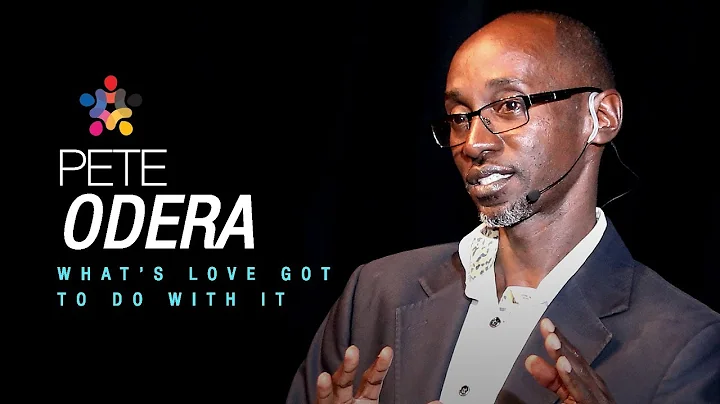The Transformative Power of Hearing and Listening to God's Word
Table of Contents
- Introduction
- The Importance of Hearing and Listening to God's Word
- Jesus' Family and Discipleship
- The Role of Mary as a Model Disciple
- The Challenge for Christians Today
- Taking Action on God's Word
- Building Relationships Beyond Blood Ties
- The Value of True Friendship
- Overcoming Judgments and Prejudices
- Conclusion
Hearing and Listening: The Key to Discipleship
In today's reading from the holy gospel according to Luke, we come across a passage that emphasizes the importance of hearing and listening to God's word. This theme of hearing is prevalent throughout the chapter, and it forms the core of what it means to be a disciple of Jesus. As we delve deeper into this text, we will explore the significance of this message and how it relates to our lives as Christians.
1. Introduction
The passage from Luke's gospel, specifically verses 19 to 21 in chapter 8, is part of a larger section that focuses on the theme of hearing and listening. This section, beginning from verse 4 and ending with verse 21, underscores the central role of disciples in both hearing and internalizing the word of God. It highlights that discipleship goes beyond simply being able to hear the parables of the kingdom; it involves understanding and living out the teachings in everyday life.
2. The Importance of Hearing and Listening to God's Word
In verse 18, Jesus cautions his disciples, urging them to pay attention to how they listen. He emphasizes that hearing without understanding leads to a barren faith that bears no fruit. This message resonates throughout the entire section, as Jesus repeats the terms "hearing" and "listening" five times. Through this repetition, Jesus makes it clear that disciples must not only passively receive the word, but actively engage with it, pondering it in their hearts.
3. Jesus' Family and Discipleship
The passage takes an interesting turn as we encounter Jesus' mother and brothers seeking him but unable to reach him due to the large crowd. When informed about their presence, Jesus seizes the opportunity to redefine familial relationships. Instead of prioritizing blood ties, he states that those who hear and live out God's word are his true family. This statement challenges our conventional understanding of family bonds and invites us to consider the deeper connection we share as followers of Christ.
4. The Role of Mary as a Model Disciple
Unlike other gospel accounts where Jesus appears to distance himself from his family, Luke portrays Mary as a model disciple who embodies the ideal response to God's word. Mary's "yes" to the angel Gabriel demonstrates her willingness to not only hear the word but also internalize it and act accordingly. Luke wants to present Jesus' family, including Mary and his brothers, as exemplars of discipleship, individuals who have truly heard, listened, and responded to God's word.
5. The Challenge for Christians Today
As we reflect on this passage, the question arises: What can we, as Christians today, take away from it? It prompts us to consider whether we have truly understood the call to discipleship beyond our baptism or religious rituals. Merely attending Mass or going through the motions is not enough. We must actively engage with God's word, allowing it to touch our hearts, and taking it beyond the walls of the church into our daily lives.
6. Taking Action on God's Word
Jesus' words at the end of Mass, "The Mass is ended; go in peace," remind us that hearing and listening to God's word should lead to action. Our faith should manifest in the way we live, interact with others, and make a difference in the world. It challenges us to reflect on whether we are truly living out the teachings of Jesus in our actions and decisions, or if our faith is merely confined to the pews.
7. Building Relationships Beyond Blood Ties
Jesus' redefinition of family also calls us to rethink the ways we relate to others. While blood relations hold a special place in our lives, the passage suggests that our deepest relationships may extend beyond them. It is through the bonds of shared values, understanding, and mutual support that true brotherhood and sisterhood are formed. We should strive to build meaningful connections with others, reaching out to those in need and fostering a sense of belonging and community.
8. The Value of True Friendship
In our journey as disciples, we may find ourselves closer to individuals who are not related to us by blood than to our own family members. These deep connections often transcend societal norms and expectations, demonstrating the power of genuine friendship. The passage invites us to cherish and nurture such relationships, recognizing the profound impact they can have on our lives and spirituality.
9. Overcoming Judgments and Prejudices
As we navigate our relationships with others, it is essential to break free from judgments and prejudices. The passage challenges us to look beyond external factors and appreciate the beauty within each person. Sometimes, we are surprised to find that the individuals who touch our hearts the most are not those we expected. By embracing the diversity of human connections, we create spaces for love and understanding to flourish.
10. Conclusion
In conclusion, this passage from Luke's gospel serves as a profound reminder of the transformative power of hearing and listening to God's word. It challenges us to move beyond passive reception and into active engagement with our faith. As we build relationships with others and live out the teachings of Jesus, we become true disciples, embodying the values of love, compassion, and understanding.
Highlights:
- The importance of hearing and listening to God's word as a hallmark of discipleship
- Jesus' redefinition of family based on shared faith and discipleship rather than blood ties
- The role of Mary as a model disciple who embodies the ideal response to God's word
- The need for Christians to actively engage with and live out the teachings of Jesus
- The value of building relationships beyond blood ties, fostering a sense of community
- The power of genuine friendship and its impact on our spirituality
- Overcoming judgments and prejudices, embracing the beauty within each person
FAQ:
Q: How can we actively engage with God's word?
A: Actively engaging with God's word involves reading the Bible regularly, reflecting on its meaning, and applying its teachings in our daily lives. It requires an open heart, a willingness to listen to the promptings of the Holy Spirit, and a commitment to live out our faith in tangible ways.
Q: Can friendships be more important than blood relations?
A: While blood relations hold a special place in our lives, friendships can sometimes provide the support, understanding, and connection that goes beyond what we experience within our families. Deep and meaningful friendships can greatly enrich our lives and contribute to our spiritual journey.
Q: How can we overcome prejudices and judgments towards others?
A: Overcoming prejudices and judgments requires a conscious effort to see beyond surface-level differences and biases. It involves cultivating a mindset of empathy and respect, genuinely seeking to understand others' experiences and perspectives. By challenging our own preconceptions and treating others with compassion and kindness, we can foster a more inclusive and accepting community.







